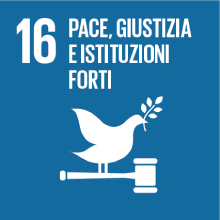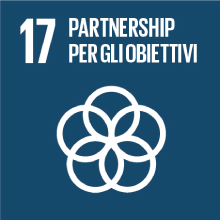HISTORY OF INTERNATIONAL RELATIONS ADVANCED COURSE
- Anno accademico
- 2022/2023 Programmi anni precedenti
- Titolo corso in inglese
- HISTORY OF INTERNATIONAL RELATIONS ADVANCED COURSE
- Codice insegnamento
- LM3140 (AF:388048 AR:203444)
- Lingua di insegnamento
- Inglese
- Modalità
- In presenza
- Crediti formativi universitari
- 6
- Partizione
- Cognomi A-L
- Livello laurea
- Laurea magistrale (DM270)
- Settore scientifico disciplinare
- SPS/06
- Periodo
- I Semestre
- Anno corso
- 1
- Spazio Moodle
- Link allo spazio del corso
Inquadramento dell'insegnamento nel percorso del corso di studio
Risultati di apprendimento attesi
a) a consolidated and expanded critical knowledge of some of the main turning points in the international history of the 20th and early 21st centuries;
b) a confident knowledge of the literature on the US’s post-1945 rise to international power, as well as on its persistency and change up to the 2008 global financial crisis;
c) the development of a capacity to formulate original and well-founded interpretations of specific moments in the history of US power relations vis-à-vis other actors in the international system;
d) the development of the ability to create, read and interpret critically a bibliography in international history, and to express critical judgments on international affairs based on sound historical knowledge, beyond the specific object of the course itself;
e) the development of the ability to communicate knowledge with coherence, clarity and precision, and to take part in informed debates about international affairs.
f) the development of the ability to further one’s knowledge in the field of international history in an autonomous and self-organized manner.
Prerequisiti
Contenuti
Testi di riferimento
The students who do not attend the classes on a regular basis will substitute the class notes with additional readings (as specified in the detailed class schedule available on Moodle. I assume they may follow at least some classes, so it still makes sense to indicate what reading is useful for what class).
Important: In all parts of the course, the lectures by the teacher in class provide guidance to the reading materials and emphasize their methodological and epistemological foundations, in order to provide students with a clearer perspective on how they themselves can build an interpretation of international affairs based on sound historical knowledge. Students who do not attend the class will have to do more readings, including a textbook on historical methodology, for the simple fact they will need to make up for missed information. In any case, both the students who attend and those who do not attend the classes have to take the assigned readings seriously: neither the class notes alone, nor the summaries of the class lectures or of the readings, which may circulate online or elsewhere, can be considered sufficient to prepare this exam in a satisfactory way (to be sure, such material may be simply detrimental to your learning).
Provisional list of references (definitive and complete list available on Moodle):
Lens Scott, "International History of the Twentieth Century", in John Baylis, Steve Smith and Patricia Owens (eds.), The Globalization of World Politics, 2016
Michael Cox, “From the end of the cold war to a new global era?”, in John Baylis, Steve Smith and Patricia Owens (eds.), The Globalization of World Politics, 2016
Andrew Hurrell, "Rising powers and the emerging global order", in John Baylis, Steve Smith and Patricia Owens (eds.), The Globalization of World Politics, 2016
Daniel Sargent, “Pax Americana: Sketches for an Undiplomatic History”, Diplomatic History, Vol. 42, no. 3, 2018
Charles Maier, Among Empires. American Ascendancy and Its Predecessors, 2007
Giovanni Arrighi, “Hegemony unravelling, pt. 2”, New Left Review, n. 55, 2005
Giovanni Arrighi, “The world economy and the Cold War, 1970-90”, in M. Leffler and O.A. Westad (eds.), The Cambridge History of the Cold War, Volume 3, 2010
Philip Golub, Power, Profit and Prestige. A History of American Imperial Expansion, 2010
Naoko Shibusawa, “U.S. Empire and Racial Capitalist Modernity”, Diplomatic History, vol. 45, no. 5, 2021
Oscar Sanchez-Sibony, “Capitalism's Fellow Traveler: The Soviet Union, Bretton Woods, and the Cold War, 1944–1958”, Comparative Studies in Society and History, Vol. 56, no. 2, 2014
Stephen Kotkin, “The Kiss of Debt. The East Bloc Goes Borrowing”, in N. Ferguson et al., The Shock of the Global, 2008
Marc Trachtenberg, The Craft of International History, 2006
Sergey Radchenko, “‘Nothing but humiliation for Russia’: Moscow and NATO’s eastern enlargement, 1993-1995”, Journal of Strategic Studies, Vol. 43, Nos. 6–7, 2020
M.E. Sarotte, “Perpetuating U. S. Preeminence: The 1990 Deals to ‘Bribe the Soviets Out’ and Move NATO In”, International Security, Vol. 35, No. 1, 2010
Joshua Shifrinson, “Deal or No Deal? The End of the Cold War and the U.S. Offer to Limit NATO Expansion”, International Security, Vol. 40, No. 4, 2016
Modalità di verifica dell'apprendimento
Modalità di esame
Metodi didattici
Altre informazioni
Mr. Alessandro Barlese is the tutor for this course. He can be contacted at 872203@stud.unive.it.
Students with disabilities can contact the Disability and Accessibility Office (disabilita@unive.it) to take advantage of the services available (e.g. alternative examination methods, readers, etc.).
The teacher is easily available for questions concerning the course at his office hours and by email at duccio.basosi@unive.it. Emails have to be written in a formal style (not "Hi prof." or "Salve prof.", but "Good morning", "Buongiorno", and the likes). Please use my e-mail address parsimoniously and do not think of it as an instant messaging app, nor as a customer care service: it is neither. Emails should not ask questions whose answer can be found in the information contained in this syllabus (e.g.: "what are the readings for this course?", etc.).
Students interested in carrying out a master's degree thesis in History of international relations can ask the teacher, after passing the exam, for the guidelines for the thesis (by writing directly to duccio.basosi@unive.it).
Obiettivi Agenda 2030 per lo sviluppo sostenibile
Questo insegnamento tratta argomenti connessi alla macroarea "Cooperazione internazionale" e concorre alla realizzazione dei relativi obiettivi ONU dell'Agenda 2030 per lo Sviluppo Sostenibile



